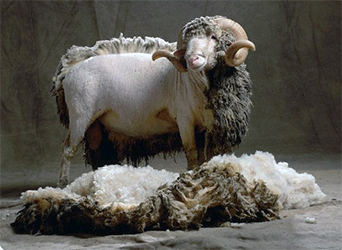|
Merino Wool: The Sustainable Champion of the Fashion Industry6 May 2023 | Graham
Merino Wool: The Sustainable Champion of the Fashion Industry When it comes to sustainable fashion, one material stands out for its exceptional qualities and eco-friendly attributes: merino wool. Derived from the fine fleece of Merino sheep, this natural fibre has gained widespread recognition for its remarkable sustainability. From renewable sourcing to minimal environmental impact, merino wool embodies the principles of ethical production and responsible consumption. Merino wool is a renewable resource, thanks to the regenerative nature of sheep. These animals can be shorn annually, providing a consistent supply of wool without causing harm. Furthermore, merino wool is biodegradable, meaning it can naturally decompose over time, leaving no trace of environmental pollution. Unlike synthetic materials that persist in landfills for centuries, merino wool returns to the earth, completing a sustainable cycle. Compared to synthetic fibres, merino wool has a significantly lower environmental impact. Sheep farming requires relatively less water and energy compared to the energy-intensive processes involved in manufacturing synthetic fabrics. Additionally, merino wool production emits fewer greenhouse gases and has a lower carbon footprint. The natural fibre’s production involves minimal chemical treatments, reducing the release of harmful substances into the environment. One of the key tenets of sustainability is reducing waste. Merino wool excels in this aspect due to its exceptional durability. Garments made from merino wool tend to outlast their synthetic counterparts, resulting in fewer replacements and reduced textile waste. The longevity of merino wool also translates into a reduced demand for resources, as consumers can enjoy their favourite merino wool items for an extended period. Merino wool's versatility contributes to its sustainability credentials. It is a material suitable for all seasons, thanks to its natural breathability and moisture management properties. In colder climates, merino wool provides excellent insulation, keeping individuals warm and comfortable. In warmer weather, the fibre’s breathability allows for effective heat dissipation and helps regulate body temperature. This adaptability means fewer clothing items are needed, reducing excessive consumption and environmental impact. Sustainable merino wool production places a strong emphasis on animal welfare. Responsible farmers prioritize the well-being of their sheep, ensuring they live in healthy and humane conditions. Ethical practices include providing ample space for grazing, access to clean water, and protection from extreme weather. Farmers prioritize the health and happiness of the sheep, resulting in healthier wool and a more sustainable industry. Merino wool is a true champion of sustainability in the fashion industry. Its renewable and biodegradable nature, low environmental impact, durability, versatility, and ethical animal welfare practices make it an exceptional choice for conscious consumers. By choosing merino wool products, we support responsible and eco-friendly practices that promote the well-being of animals and minimize harm to the environment. As we strive for a more sustainable future, merino wool continues to showcase the positive impact that natural and renewable materials can have on the fashion industry. Let us embrace the beauty and sustainability of merino wool and take a step towards a greener and more ethical world of fashion. For those seeking top-quality merino wool knitwear and accessories, look no further than online retailer Westaway & Westaway. Their commitment to sustainable fashion is reflected in their range of products available at westaway.co.uk/merino.html |





